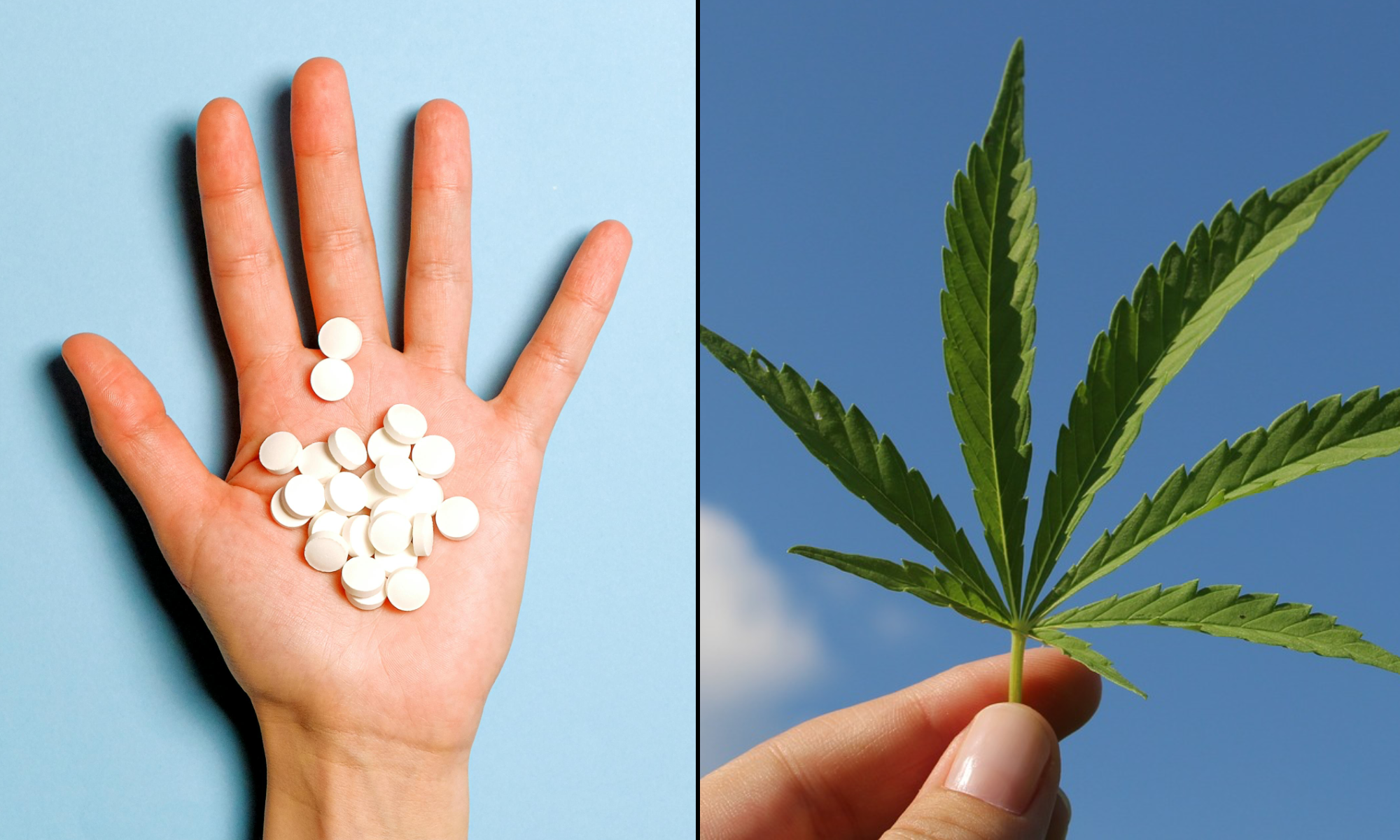Science & Health
Medical Marijuana ‘Significantly’ Decreases Use Of Opioids By Chronic Pain Patients, New Study Finds

A new study is offering more evidence that marijuana can serve as an effective substitute for opioids in pain management treatment.
Researchers in Australia at Murdoch University and the Perth Pain Management Centre set out to investigate how the integration of cannabinoids into treatment for people with chronic non-cancer pain would impact opioid use.
The study, published in the journal Pain Management on Monday, determined that “co-prescription of cannabinoids may enable patients to reduce their opioid consumption prescribed for chronic benign pain.”
To assess the relationship between cannabis and opioids in treatment, researchers followed two cohorts of patients over the course of a year: One group of 102 patients at a pain clinic who were already taking opioids and were co-prescribed cannabis and another group of 53 patients at a different clinic who were only receiving opioids, without marijuana.
At the baseline, the median patient was taking about 40 mg of opioids per day. After a year, the group that received a median dose of medical cannabis containing 15 mg delta-9 THC and 15 mg of CBD “significantly” decreased their opioid dose to 2.7 mg per day. The opioid-only cohort after one year was taking a median 42.3 mg per day.
“The introduction of cannabinoids can produce useful reductions in opioid consumption in real-world settings, with additional benefits for disability and insomnia,” the study authors said. “However, this treatment is tolerated by only a subgroup of patients.”
Among the cohort that incorporated cannabis into their treatment regiment, “opioid consumption decreased significantly after both 6 and 12 months.”
“Physical activity and sleep also improved. These findings indicate that medicinal cannabis can help patients to reduce their opioid consumption and improve their physical activity and sleep,” the study concluded.
The findings are also consistent with a growing body of scientific literature exploring the association between cannabis and opioid use.
For example, a study published earlier this year in the journal Drug and Alcohol Review found that, among drug users who experience chronic pain, daily cannabis use was linked to a higher likelihood of quitting the use of opioids—especially among men.
A study published late last year also found that legalizing medical cannabis appeared to significantly reduce monetary payments from opioid manufacturers to doctors who specialize in pain, with authors finding “evidence that this decrease is due to medical marijuana becoming available as a substitute” for prescription painkillers.
Other recent research also showed a decline in fatal opioid overdoses in jurisdictions where marijuana was legalized for adults. That study found a “consistent negative relationship” between legalization and fatal overdoses, with more significant effects in states that legalized cannabis earlier in the opioid crisis. Authors estimated that recreational marijuana legalization “is associated with a decrease of approximately 3.5 deaths per 100,000 individuals.”
“Our findings suggest that broadening recreational marijuana access could help address the opioid epidemic,” that report said. “Previous research largely indicates that marijuana (primarily for medical use) can reduce opioid prescriptions, and we find it may also successfully reduce overdose deaths.”
Another recently published report into prescription opioid use in Utah following the state’s legalization of medical marijuana found that the availability of legal cannabis both reduced opioid use by patients with chronic pain and helped drive down prescription overdose deaths statewide. Overall, results of the study indicated that “cannabis has a substantial role to play in pain management and the reduction of opioid use,” it said.
Yet another study, published in 2023, linked medical marijuana use to lower pain levels and reduced dependence on opioids and other prescription medications. And another, published by the American Medical Association (AMA) last February, found that chronic pain patients who received medical marijuana for longer than a month saw significant reductions in prescribed opioids.
About one in three chronic pain patients reported using cannabis as a treatment option, according to a 2023 AMA-published report. Most of that group said they used cannabis as a substitute for other pain medications, including opioids.
Other research published that year found that letting people buy CBD legally significantly reduced opioid prescription rates, leading to 6.6 percent to 8.1 percent fewer opioid prescriptions.
A 2022 research paper that analyzed Medicaid data on prescription drugs, meanwhile, found that legalizing marijuana for adult use was associated with “significant reductions” in the use of prescription drugs for the treatment of multiple conditions.
A 2023 report linked state-level medical marijuana legalization to reduced opioid payouts to doctors—another datapoint suggesting that patients use cannabis as an alternative to prescription drugs when given legal access.
Researchers in another study, published last year, looked at opioid prescription and mortality rates in Oregon, finding that nearby access to retail marijuana moderately reduced opioid prescriptions, though they observed no corresponding drop in opioid-related deaths.
Other recent research also indicates that cannabis may be an effective substitute for opioids in terms of pain management.
A report published recently in the journal BMJ Open, for instance, compared medical marijuana and opioids for chronic non-cancer pain and found that cannabis “may be similarly effective and result in fewer discontinuations than opioids,” potentially offering comparable relief with a lower likelihood of adverse effects.
Separate research published found that more than half (57 percent) of patients with chronic musculoskeletal pain said cannabis was more effective than other analgesic medications, while 40 percent reported reducing their use of other painkillers since they began using marijuana.



